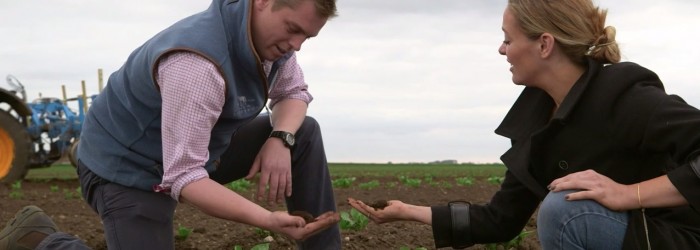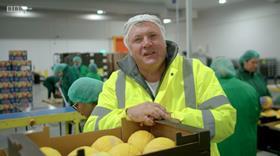
A new BBC programme about the UK’s fresh fruit and veg import-export trade has attracted the biggest ever audience of 16-24 year olds for a BBC2 documentary, according to Nationwide/Vitaal Group chief executive Tim O'Malley, who featured in the programme.
The episode, part of a new three-part television series called What Britain Buys and Sells in a Day, saw presenters Ed Balls, Ade Adepitan and Cherry Healey look at how the UK sources fresh produce from all over the world, as well as emerging potential for it to sell its products abroad.
O’Malley, who was interviewed by Balls during the programme about the positive impact that growing consumer demand for healthy food is having on the fresh vegetable business, said the fact it had been so well received was a reflection of how much interest consumers were now showing in healthy eating.
“What that says to me is that 16-24 year-olds want to know all about fruit and veg,” he said in a video interview with Max MacGillivray of Redfox Executive Selection at this week’s FPJ Live. “This whole vegan and vegetarian movement is really taking hold, and particularly among the kids.”
The series' first episode focused on fresh fruit and vegetables, looking specifically at how imports are handled and distributed via a major port of entry like DP World London Gateway, how they are produced around the world, and how producers in the UK itself are managing to secure their place on the national or international market.
Even for those working in the fresh produce business who know the market better than most, there were several interesting things to learn about where the UK fresh produce business stands right now and where it may be heading. Here are seven things we noted…
1. Sexy time…
Fruit and vegetables are now important enough to get top billing on a major BBC documentary series, ahead of the second and third episodes, which are about seafood and cars respectively. “We are sexy,” insisted O’Malley in his conversation with MacGillivray, hopefully still talking about the industry itself. “Our industry is trendy. Take it from me.” Phew, he was.
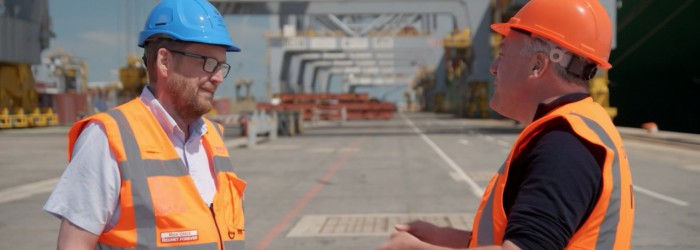
2. The B word…
Brexit is the elephant in the room and the fresh produce industry is likely to be one of the food industries worst affected in the case of no deal. Despite the B word only being mentioned two or three times during the hour-long show, the revelation that a two-minute delay per truck coming into the UK will cause five hours of traffic delay in Kent will be news to many viewers. Speed and technology will be vital to keeping us fed, presenter Ed Balls said.
3. Thirsty work…
The continued boom in sales of fresh avocados requires a lot of inputs further back along the supply chain, something consumers might not fully appreciate. Aside from illustrating the apparent need effectively to make two cuts when harvesting each individual fruit, the documentary also underlined just how thirsty a fruit the avocado is, requiring 600 litres of water to produce 1kg.
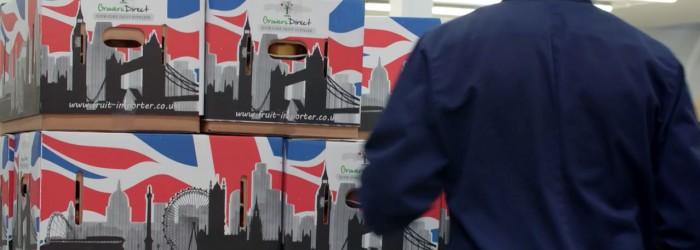
4. Apples to Arabia…
UK supermarkets – and by extension consumers – might not want the country’s larger-sized apples, but as leading supplier Adrian Scripps is finding, there is a burgeoning market for them in the Middle East. As a result, the kind of branding normally reserved for tourist souvenirs sold on London’s Oxford Street is being put to good use on cartons of big apples heading to places like Qatar. Kuwait and Saudi Arabia.
5. Almost one-way traffic…
However, that doesn’t mean the UK is edging towards becoming a net exporter of fresh produce, or even just self-sufficient. Approaching 9pm on the day featured in the episode, the UK had reportedly imported £18.8m worth of fruit and veg from more than 100 countries, as opposed to £1.4m exported. Lots of the containers used to bring in that produce are returned to their point of origin completely empty. And in many cases, such as for tomatoes, importing the product appears far more sustainable when you’re sourcing from a major producer nearby like the Netherlands.
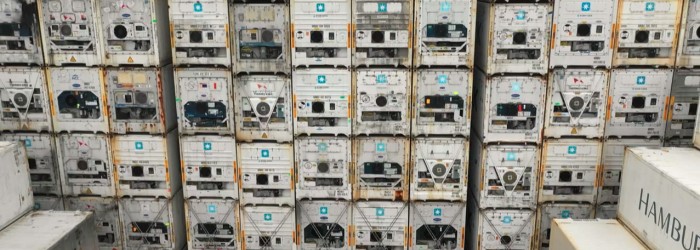
6. Run on the market…
In a market so dependent on other sources of supply, a marketing fad or a weather event can soon snowball into a major spike in demand or a serious shortage of supply. As O’Malley told Balls during the show, a surge in sales of vegetable spiralisers in the run-up to Christmas 2016 and a subsequent flood in Spain sowed the seeds of the much-publicised 'courgette crisis' of January 2017, when consumer outrage was apparently whipped up by a single tweet from a Waitrose customer who couldn’t get hold of the vegetable. Courgettes went from £4-6 per box to around £20-25 per box.
7. Old school lessons…
Christopher Lee of Cambridgeshire-based potato grower PJ Lee & Sons demonstrated just how crucial real human expertise can be when it comes to managing supply. Much has been made in recent years of how the so-called internet of things could eventually see a crop’s various inputs managed remotely or even automatically, but for Lee the best way of keeping his spuds topped up with just enough water was to dig down to the roots and squeeze the soil in order to measure its moisture level. Yes, the robots are coming, but perhaps it would be more sociable to pass on these skills to a real human being?
